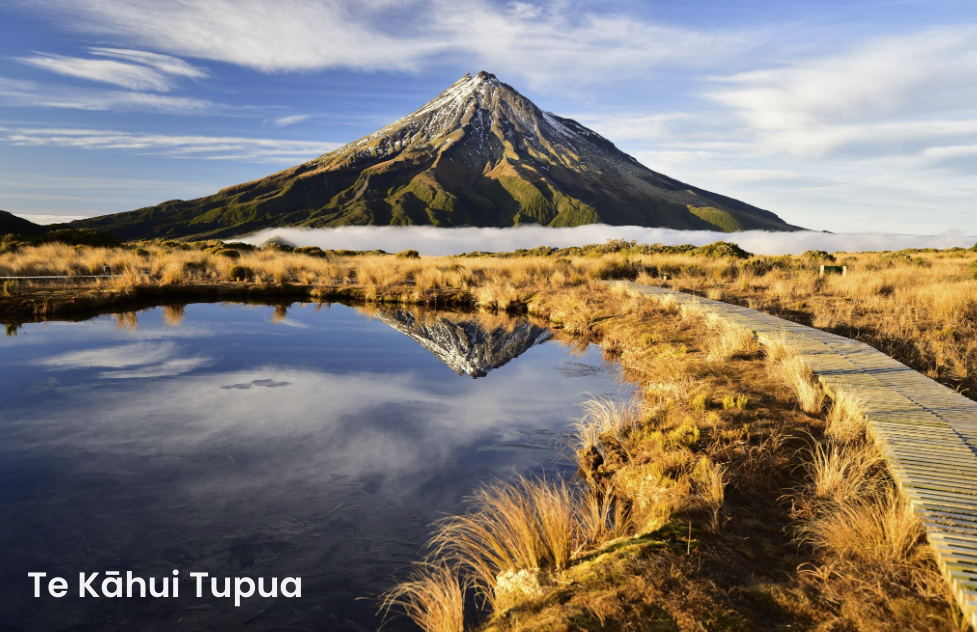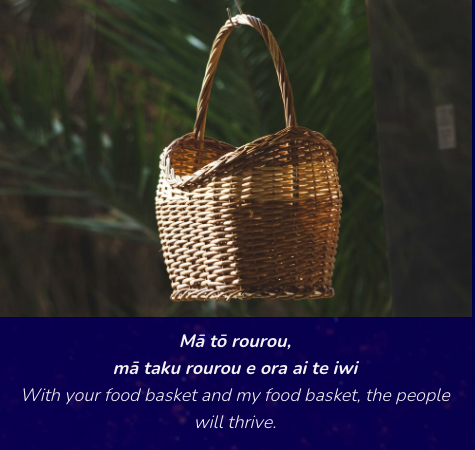The Obstacle is the Path
Unexpected Challenges and New Connections
Embracing Stoicism's philosophy that "the obstacle is the path" has profoundly shaped my journey. Without it, I would still be entangled in frustrations, feeling misunderstood, and struggling with an attachment to the ideals of Earth equity—all perspectives deeply rooted in Tao iwi. My grounding in pepeha connects me to my origins, the narratives I carry, and the mana I strive to maintain. During a recent flight to Nelson, an unexpected turn of events—a literal act of God in the form of adverse weather—prevented our landing and forced us to turn back, delaying our arrival. Once there, a fortuitous encounter with a friend who was familiar with mahi led to an unplanned yet pivotal discussion. He inquired if my visit was to meet with the Iwi GM at a critical hui concerning wastewater consent. Although it was not my original plan, this chance meeting steered me into significant conversations, prompting me to share the preparatory work on how we had structured our approach to key environmental issues.
Does a company have obligations to ecosystems?
What are the director's duties to a human representative of an ecosystem?
Aligning Kaupapa with the ecosystems’ intrinsic Mana?
Exploring Tau Iwi obligations under Te Tiriti o Waitangi?
Why does the growth of the economy not value the environment?
Taranaki Maunga and the other peaks in its surrounding national park will soon become a legal person named Te Kāhui Tupua. It follows the preliminary signing of a Treaty settlement last week that sets out redress for the confiscation of the maunga 157 years ago.
Resolving Conflict
The inspiration for this work comes from the legal personhood for natural entities in New Zealand and the traditional use of Trust Law - Iwi & Tau Iwi perspectives. Learnings from Ngāti Whātua Ōrākei proved we want to uphold the rights of mana whenua to kaitiakitanga, but it hasn't been easy. As I begin to understand the cultural tax, I know I am consciously incompetent, breaching WAI 262, not knowing the history of karakia I have used, misunderstanding of a kaumātua’s role in a hapu context, and others saying I’m showing up as the threat of colonisation, my trauma of the need to be liked from losing my brother and father at a young age.
Truly sharing my journey to structure nature as a shareholder, the pepeha, when received, provides a connection. My first interview, one where the sharing of the mauri - in Tau Iwi terms would be considered a regenerative economic model, but I did not feel this is mātauranga Māori. What it did do was create mana, yet the boundaries of the formal company structure showed a distinct contrast. Support from senior leadership - is it awareness or compliance? The person's mana is much stronger than the mana of the organisation, and from the meeting, the flow state, as I’ve learnt in mātauranga terms, is akin to Waiora.
I began as this person told me that the man I needed to meet was a kaumātua, and the very next day, he was offering kararea to the conference. I can’t explain mauri, but I know when I experience it. Nervously, I approached the kaumātua and asked for a hui that next day. I reflected on our journey; I can see we share differing views, mine as a Tau Iwi, my founder as a Parsi, and why we can agree on the first principles of nature and that we want to give Papatūānuku a voice at the boardroom table. Acknowledging that the scientific world and spiritual worldviews co-exist. But I don’t know if this should be about nature or mana whenua.
Values and Principles for Environmental Stewardship
Working within the group, I was aware that the RMA causes an unlimited number of times that the law requires us to engage mana whenua, and this was a burden I was not aware of how much 100-200 hours every year for some volunteers. Māori upholding every Kiwi's right for the planet to live in balance with nature, on top of their day job, commitment to their marae, and whānau, this cultural tax Māori pay to protect the whenua for everyone's benefit is unmeasurable. The Kotahitanga mō te Taiao Alliance partners, we met with the chairs. They say to engage directly, but engaging directly burdens local iwi. The CEO of the Iwi explained the purpose of setting up the values system. At the meeting with the Kotahitanga mō te Taiao Alliance partners, the chairs expressed that direct engagement is essential but can burden the iwi. The CEO of the iwi explained that the purpose was to establish a values system.
Manaakitanga: To care for each other, to be respectful, and to engage in acts of reciprocity, sharing natural resources with one another.
Kaitiakitanga: Active utilisation, preservation, conservation, maintenance, and management of the environment, including flora, fauna, aquatic, and marine life.
Mātauranga Māori: Acceptance and acknowledgment of Māori epistemologies within the construction of key concepts and projects.
Kotahitanga: Unity of purpose and collective agreement aimed at achieving outcomes and goals.
Rangatiratanga: The chiefly right to determine the use and management of the natural environment.
Mauri: The principal life force of our environments is protected, including their sacredness (tapu) and spirit (wairua).
Arohatia: Duty of care and responsibility to this kaupapa, to each other, and to iwi. Ensures that native species, including those found nowhere else, thrive.
The Outcomes of Implementing this Kotahitanga mō te Taiao Alliance Strategy
Naturally functioning ecosystems are protected, restored and enhanced
Wilderness is sustained
People flourish in harmony with nature
Ecological connections and resilience are protected, restored and enhanced
There is also a council agreement. Yet, the iwi and council are not aligned because there is no standard, and the timeframes for action cannot be agreed upon. Recently, the landfill declined proposed stewardship due to cost, poor governance, the cost-of-living crisis, and the uncosted impact on polluting the planet.
As often happens, our levels of knowledge differ in Te Reo, so the more profound journey to restore equity to iwi will sometimes create some conflict about the level of support for the practices of mana whenua, who are sometimes unavailable due to the level of requests or misunderstanding of Te Reo as a Tau Iwi organisation. We also faced challenges with where we might be the solution, but we don’t understand the underlying challenges.
We aim to redefine our values, show how they align with those of the Kotahitanga mō te Taiao Alliance, and prepare for the iwi GMs the facts to consider about discussion affecting their role. Having a kaitiaki on the board is not a choice; it’s a privilege. The work of Māori is already overwhelming. Māori korero with nature every day, so do we; we share similar values, even if we whakapapa from different whenua.
This work has sometimes been overwhelming as I also deal with the conflict between my daughter and her mother. I’ve been experiencing impatience, frustration, and needing to prove myself while we await a critical decision. What I couldn’t see was that after not seeing her mum for over a year, it was bringing up my trauma from losing my father at 15 and setting unrealistic standards for myself, not admitting my anger at him leaving. This led to my need to control, enforcing my ego of needing to know. I was able to undertake some energy work and begin to release this when I saw that this trauma was preventing me from just enjoying life, having light overcome darkness, having my integrity uphold my ethics, and simply being a vessel that can be in service of others in the pace and time I occupy. How can I be of service?
I began to reflect that, in essence, mātauranga Māori in "decarbonisation" has very little to do with technology; the mauri ‘energy’ is most important. If we are to have a just transition, we need to move away from the idea of extraction.
Our mahi is grounded in the Zoroastrian concept of "Fravashi", which symbolises the collective spirit that shapes our relationships and environment. This concept underlines the importance of understanding our words and their impact on connecting and interacting.
In our discussions, one group member recounted how his father embodied Manaakitanga by welcoming weary travellers to their homes for dinner. This act of hospitality and care deeply reflects the cultural values we cherish.
Janielle provided further insights into why the circular economy might appear different from traditional understandings of the Mātarangi and Tau Iwi languages. She introduced the concepts of Utu and Koha as mechanisms for restoring Mana. Utu, often misconceived as mere revenge or a transaction, fundamentally represents balance. It is the restoration of equilibrium when Mana is disrupted or harmed. Koha complements this by facilitating the exchange that restores balance, thus honouring and reinforcing Mana. These exchanges restore and celebrate the inherent dignity and spirit within our interactions and environmental stewardship.
Whakaaro Whakamutunga
As I approach the end of this phase in the global energy quest, I find myself contemplating how Mātauranga Māori and other First Nations knowledge systems might guide our journey towards decarbonization. The trauma I've endured has hindered my ability to fully enjoy life, preventing light from overcoming darkness and challenging my ability to maintain integrity and ethics. Now, I view my role as a vessel serving others in whatever time and manner I can. The essence of Mātauranga Māori in decarbonisation lies not in the technology itself but in the crucial perspective of the mauri. To achieve a just transition, we must move beyond the concept of extraction and embrace the idea that the energy we seek is not that of the wind, sun or renewables but that of mauri— the life essence vital for navigating the vast seas of information and the rich tapestry of our diverse backgrounds and perspectives.
Collective learning has the power to change the world.
© Energy Academy 2021



